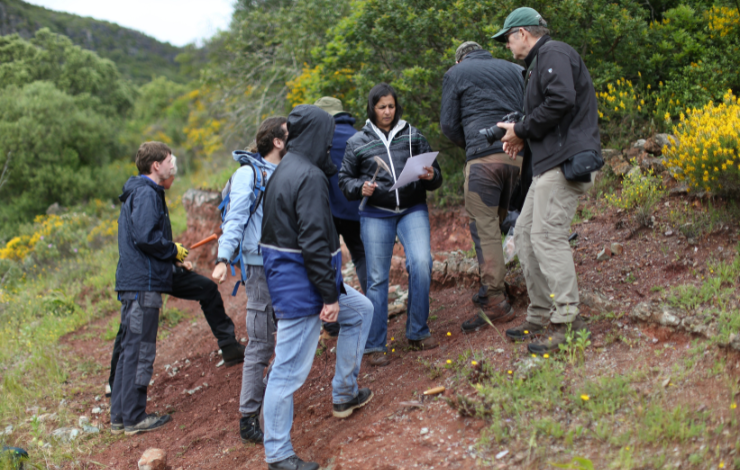19-05-2025

Photo Credits: Anne Schulp
An international team of researchers, including members from NOVA FCT, recently carried out a palaeontological excavation campaign near São Bartolomeu de Messines and in Penina, in the Algarve region of Portugal. During the campaign, fossils dating back approximately 230 million years were uncovered, belonging to vertebrates from the Triassic Period (Carnian Age).
The fossils may include remains of some of the earliest dinosaurs and primitive mammals, representing a significant discovery for our understanding of terrestrial vertebrate evolution and for palaeontology in Portugal. This research also contributes to the appreciation and preservation of the region’s geological heritage, which forms part of the application for the future Algarvensis Geopark to gain UNESCO status.
NOVA FCT is one of the project’s partner institutions, under the coordination of palaeontologist Lígia Castro. The NOVA FCT team, consisting of Master’s and PhD students, is engaged in the careful excavation of macrofossils, the laboratory preparation of microfossils, and the taxonomic and palaeoenvironmental study of the recovered material. The team is also involved in the scientific interpretation of the findings and in knowledge-sharing activities with both the local and academic communities. The macrofossils will be prepared at the Natural History Society in Torres Vedras.
This project, led by researcher Ricardo Araújo from CERENA – Centre for Natural Resources and the Environment (IST), and supported by the Explorers Club and the Municipalities of Loulé and Silves, highlights the Faculty’s involvement in international research efforts in the fields of Geology, Evolutionary Biology, and Palaeontology, contributing to scientific advancement and the appreciation of Portugal’s natural heritage.